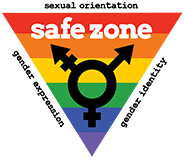Content Warning: discussion of sexual abuse, sexual predators, and the legal system. No descriptions of sexual acts.
.
.
.
.
.
As one of his final acts as Governor of Kentucky, Matt Bevin has taken it upon himself to pardon a convicted child abuser. (LINK) The case is a highly unusual one that hinges upon a retired judge who became convinced of the innocence of the man he once convicted.
In 2001, Paul Donel Hurt was convicted of sexually abusing his six-year-old stepdaughter. The child reported the abuse at the time to her stepmother who contacted police. The child was able to describe in graphic detail what had been done to her. She also exhibited many of the red flags typically associated with sexual trauma. Her behavior, her knowledge, and her testimony helped a jury convict Hurt of criminal sexual abuse and he was sentenced to life in prison.
The judge who oversaw the case, Stephen Mershon [and no, I’m not giving him an honorific here on purpose], began to correspond with Hurt in prison and eventually became convinced that Hurt was an innocent man. He then began to communicate with the victim to try to convince her of the same. In 2015, after contact from Mershon, the victim recanted her 2001 testimony, saying that she had not actually been abused by Hurt. Mershon went so far as to assist the victim in writing a letter to a previous Governor asking to pardon her stepfather. That attempt failed as did Hurt’s many appeals of his conviction.
Even after Mershon’s intervention and the victim’s 2015 recanting of her testimony, judges still refused to overturn Hurt’s conviction. The judicial opinion (LINK here) written at that time states that the victim only recanted her testimony after interference from Mershon and that her recantation was much less compelling and much more inconsistent than her original testimony. The appeals court ruled that Hurt’s conviction should stand.
Despite the overwhelming evidence of Hurt’s guilt, Mershon felt compelled to interfere and Governor Bevin felt compelled to do the same. When Hurt was released from prison after his pardon, Mershon was the one to pick him up and drive him home.
Now, you might be asking yourself, if the victim recanted, why am I so upset by this? From the outside, this might look like an innocent man finally receiving justice. But as an expert working in the movement to end sexual violence, this case is all too familiar and shows the failings of our society to understand trauma and victimization. There are a few important lessons we need to learn from this miscarriage of justice:
- Children RARELY lie about being sexually abused. If a child has disclosed abuse to you, believe them.
- Children will often feel guilt over loved ones or trusted adults who face consequences for abuse. Given that 90-93% of child abusers are someone the child knows, this guilt is common. It is not unusual that a child might later recant a disclosure of abuse because they are worried about a loved one. It is also not uncommon that community members or family will make that child feel guilty if they are not very careful about consistently reminding the child that the abuse and the consequences the adult is facing are not their fault. Children who feel guilty will often recant abuse, even years later, to try to safe a loved one or a family relationship.
- Trauma is confusing and those with power should be mindful that they can alter or impact a victim’s memory by gaslighting them about what really happened.
- When we don’t hold offenders accountable, they will continue to abuse. When we publicly don’t hold offenders accountable, we give the green-light to other abusers that they will not be caught. A pardon like this undermines justice for one young victim and empowers countless other predators who feel secure that they, like Paul Donel Hurt, will not face consequences.
The key is this: when any survivor of abuse tells you about their experience, believe them. That is the most important thing we can do. This is even more important for children who will look to us for how they should feel about what happened to them. Tell children you believe them, tell them it isn’t their fault, and fight like hell to keep them safe.
If you’ve been a victim of child sexual abuse, now or in the past, Safe Passage is here and we will believe you. Call us 24/7 at 815-756-5228.



